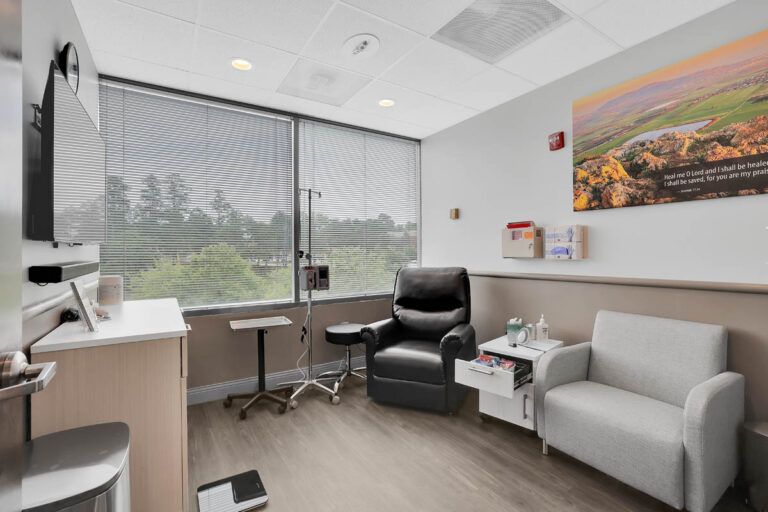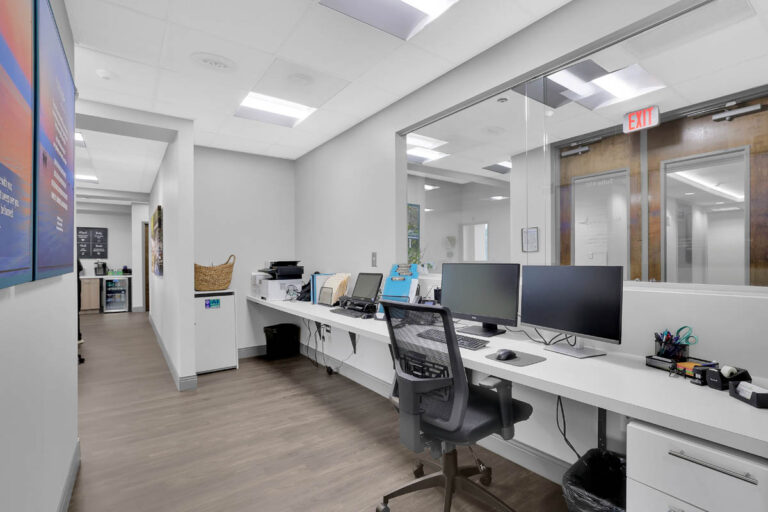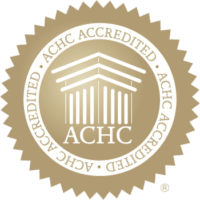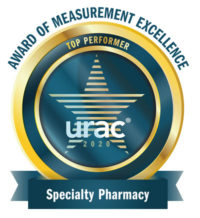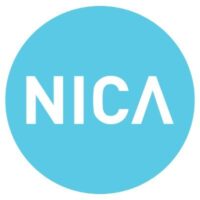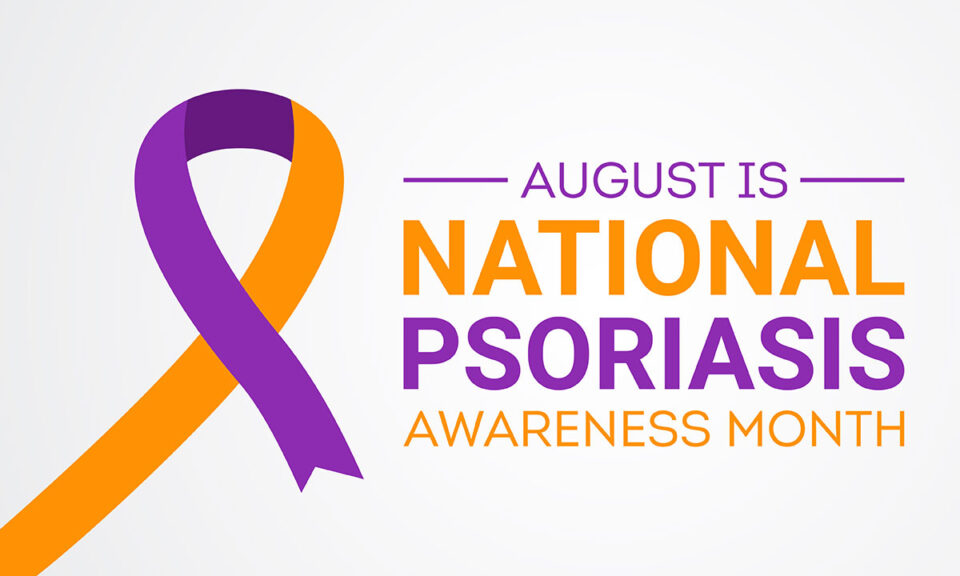
In the 1970s, a TV commercial touted a cure for “the heartbreak of psoriasis.” It portrayed psoriasis as mild scaling of the scalp or skin. However, psoriasis is much more severe. During Psoriasis Action Month (August), we examine this condition that doesn’t yet have a cure.
What is Psoriasis?
Psoriasis is a chronic disease in which skin cells build up quickly, typically causing red or discolored, raised, scaly, and itchy patches on the skin. This buildup occurs because the overactive immune system speeds up skin cell growth.
Normal skin cells grow and shed (fall off) in a month. With psoriasis, they do this in only three or four days, but instead of shedding, the skin cells pile up on the skin’s surface, causing plaques and scales to appear on any part of the body, although they are commonly found on the elbows, knees, and scalp. Some people report that psoriasis plaques itch, burn, and sting.
Although plaque psoriasis on the skin is the most apparent, inflammation caused by psoriasis can impact other organs and tissues in the body. One in three people with psoriasis may also develop psoriatic arthritis. Signs of PsA include swelling, stiffness, and pain in the joints and areas surrounding the joints.
Who Can Have Psoriasis?
Psoriasis can affect men, women, and children of all skin colors. On Caucasian skin, plaques typically appear as raised, red patches covered with a silvery white buildup of dead skin cells or scale. On skin of color, the plaques may appear darker and thicker and more of a purple or grayish color or darker brown. Symptoms often start between ages 15 and 25 but can begin at any age. Psoriasis affects more than three percent of the US adult population. That’s more than 7.5 million people.
In addition to plaque psoriasis, the most common, there are four other types of psoriasis.
It is possible to have more than one type of psoriasis at one time and more than one type in a lifetime. Treatments may vary depending on the type and location of the psoriasis.
What Can Trigger a Psoriasis Flare-up?
Unfortunately, a long list of conditions can cause a flare-up.
- Stress: Emotional stress is a prevalent trigger.
- Skin Injury: Cuts, scrapes, sunburn, bug bites, and tattoos can lead to flare-ups, known as the Koebner phenomenon.
- Infections: Strep throat, bronchitis, earaches, and respiratory infections can trigger psoriasis, especially in children. Flare-ups often occur two to six weeks after an infection.
- Weather: Cold, dry weather can exacerbate psoriasis, while warm, sunny weather may improve symptoms.
- Alcohol: Frequent or excessive alcohol consumption can worsen psoriasis and interfere with treatment effectiveness.
- Smoking: Smoking or exposure to secondhand smoke can trigger flare-ups and worsen the severity of psoriasis.
- Medications: Certain medications, including beta-blockers, lithium, and antimalarials, can trigger or worsen psoriasis.
- Diet and Allergies: Some people report that certain foods or allergens, such as gluten, can trigger their psoriasis symptoms, although this varies from person to person.
By identifying and managing these triggers, individuals with psoriasis can better control their condition and reduce the frequency and severity of flare-ups.
Treating Psoriasis
Psoriasis treatments aim to reduce inflammation, slow down the rapid growth of skin cells, and remove scales. The treatment choice depends on the severity of the condition and how well it responds to previous treatments.
Topical Treatments, such as corticosteroids, vitamin D analogs, retinoids, salicylic acid, coal tar and non-steroidal creams, are applied directly to the skin and are often the first line of treatment for mild to moderate psoriasis.
Phototherapy (Light Therapy) involves exposing the skin to ultraviolet light under medical supervision. Narrowband UVB phototherapy is more effective for widespread psoriasis. PUVA: Combines a drug called psoralen with UVA light to treat more severe cases.
These oral or injected medications work throughout the body for moderate to severe psoriasis.
- Methotrexate: Slows down cell growth and suppresses the immune system but requires regular monitoring due to potential side effects.
- Cyclosporine: An immunosuppressant that can be effective but has significant side effects, including high blood pressure and kidney problems.
- Oral Retinoids: Acitretin is used for severe psoriasis but can cause side effects like hair loss and liver problems.
- Biologics: These targeted therapies block specific parts of the immune system. Examples include adalimumab (Humira), etanercept (Enbrel), and secukinumab (Cosentyx).
- PDE4 Inhibitors: Apremilast (Otezla) helps reduce inflammation and is taken orally.
Infusion Treatments: A Targeted Approach
Infusion medications for psoriasis are typically biologics, which, unlike traditional systemic medications that affect the entire immune system, target specific parts of the immune system involved in psoriasis. This targeted approach can lead to fewer side effects compared to broad-spectrum immunosuppressants. Infusion medications for psoriasis include:
Infusion medications are administered intravenously (IV) in a healthcare setting, such as a hospital, doctor’s office, or infusion center. Infusion therapy delivers the medication directly into the bloodstream, leading to faster results than other treatment methods.
The infusion process typically takes several hours, depending on the medication and dosage. The frequency of infusions varies depending on the medication. For example:
- Infliximab is usually given at weeks zero, two, and six, then every eight weeks thereafter.
- Golimumab is typically administered at weeks zero and four, then every eight weeks.
Many patients notice improvements within four to six weeks of beginning infusion therapy, generally quicker than oral medications or topical treatments.
12Stone Infusion Centers: Infusions in a Comfortable Setting
12Stone Infusions are often the choice of psoriasis patients needing frequent infusions. We offer private suites in a relaxed setting homey. Every patient has access to a comfortable recliner, room for a guest (12 years and older), a couch for seating, a large-screen TV and soundbar, WIFI, snacks, and beverages.
Furthermore, TwelveStone Infusion Centers are staffed by caregivers trained to administer infusion treatments, and we work with your insurance company to ensure you have the best coverage possible.
Living with psoriasis is uncomfortable, but receiving infusion treatment can be comforting at 12Stone.


